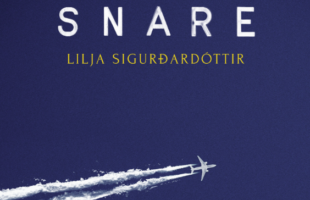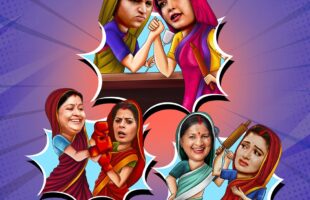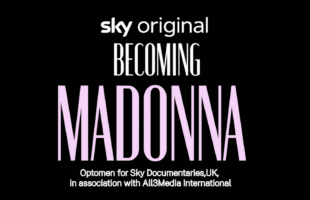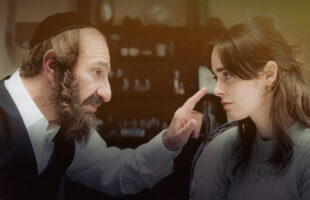Q: You started out as a news producer with BBC. How different is it from being in front of the camera?
A: I think as a news presenter, the fact that I started as a producer is vital because I really understand how the different parts of the newsroom should fit together, and I understand what it’s like to be cutting the pictures and writing the briefs and writing the scripts that go on air. Having said that, it was a big transition to start appearing in front of the camera, mostly because for a long time I still thought like a producer. So you know I’ll be doing an interview and I’ll be thinking, “I wonder if somebody has spelt the strap with the guest name correctly.”
The other big change is actually I started presenting most of my work in the studio, and then I started to present more on location and report more. And that was really important because you suddenly thought, “This is what it’s like when you’re on the other end and there’s a presenter in the studio who’s completely asking the wrong question”, and you realise what it’s like to be on the receiving end of the questions. So all of that is really important for developing the complete skill set as far as possible.
Q: And in this time you’ve become a mainstay on BBC programmes. Mishal Husain Meets features your name in the title. How important are such personalitydriven programmes for the network?
A: I think that there is more personality allowed in the news today than when I first began. A few years ago, I covered the 60th anniversary of Pakistan, and my family from Pakistan – we went to Pakistan and actually I did a film for the BBC that was about my family’s own journey in partition and how they came from India to Pakistan.
In the 50th anniversary ten years before, we would never have included a correspondent or a presenter’s personal story. It would have been someone with an outsider’s point of view. But I think now things have changed in the sense that – obviously remaining impartial and objective is the cornerstone of what we do – but at the same time, to reveal your personal connection with a story or to weave it into a narrative, is encouraged and accepted, and I think adds another dimension. There’s always a fine balancing line that you wouldn’t want to become over-involved within a story – you wouldn’t want to become subjective in any way. But showing that you have a link to the subject material is now an accepted thing to do.
Q: How do you approach the interview genre to keep things fresh?
A: Actually I think with this genre, it’s a lot easier than with the news because with everyone’s life stories, you’re starting afresh. And with every guest, you’re learning about a whole new area straight away. So for this, I’m learning about Anggun and the music scene that she became part of when she was very young. All sorts of things that wouldn’t necessarily have already registered with me before. So I think it’s much easier to keep things fresh because everybody’s life story is different.
In series two, we have a whole new look – we are very lucky because we have a two-time Oscar-nominated set designer Ian Bailey, who won a BAFTA for Atonement. He’s a very, very talented guy and so that automatically gives us something new and fantastic to work with. And it’s again having the chance to immerse yourself in six entirely new subject areas.
Q: What are the challenges on making a show like this?
A: The main thing is – it’s not like going around the world and being able to film in people’s homes or on their locations. They have to be available to come to Singapore on these dates so this is a logistically very challenging programme actually. We build the set but that means the interviewees have to come to us. We also use a studio audience, which is actually very unusual for programmes on BBC World News. Our guests also have to have an interesting enough range of life experiences and also have good enough English to sustain a half-hour interview. So I think it’s one of the most challenging shows that I’ve ever worked on.
Q: What has working with a LIVE audience been like?
A: For me personally, it’s great to be able to interact with an audience because it’s not something I get to do very much. So actually having that contact and that connection with a studio audience is great because you’re immediately thinking about the audience. They’re not some distant, amorphous group that watch your show later on – you can get feedback from the audience right away.









